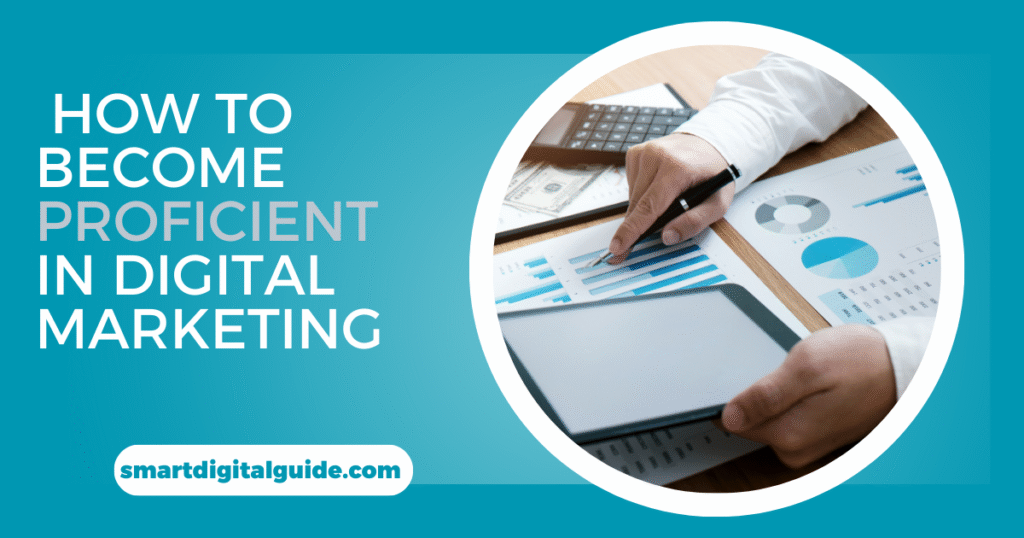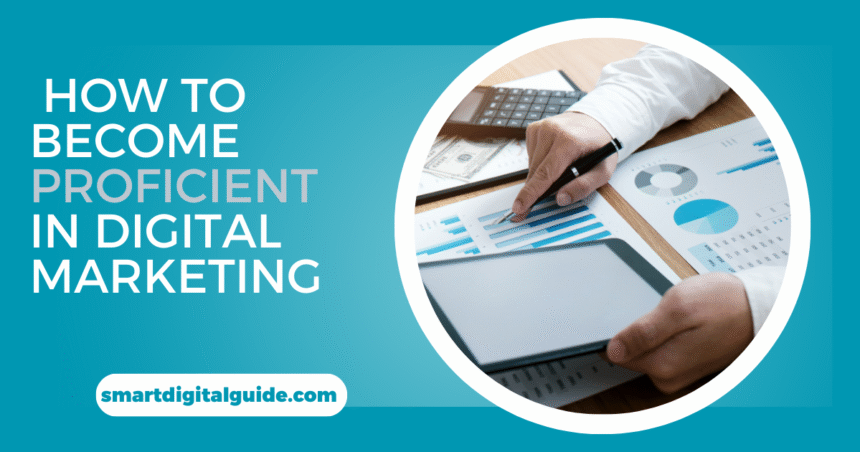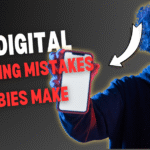In the rapidly evolving digital landscape of today, engaging in digital marketing is no longer just an option—it’s a necessity. Whether you’re a business owner, freelancer, student, or someone looking to change careers, acquiring skills in digital marketing can lead to numerous opportunities. However, with the vast array of strategies and tools at your disposal, newcomers often feel daunted.
But fear not—you are not alone. This guide aims to introduce you to the basics of digital marketing tailored for beginners. It will outline essential skills, useful tools, and best practices that will enable you to establish a solid foundation and enhance your online visibility.

What Exactly is Digital Marketing?
At its essence, digital marketing involves promoting products, services, or brands through online channels. In contrast to traditional forms of advertising (such as television ads, print media, or billboards), digital marketing harnesses the power of the internet to connect with audiences where they spend most of their time: on search engines like Google, social media platforms like Facebook and Instagram, emails inboxes ,and websites.
The critical elements of digital marketing include:
– Search Engine Optimization (SEO)
– Content Creation
– Social Media Marketing (SMM)
– Email Campaigns
– Pay-Per-Click Advertising (PPC)
– Affiliate Promotions
– Data Analytics & Tracking
For those new to this field; gaining insights into each of these components is crucial for mastering digital marketing effectively.
Reasons to Master Digital Marketing
Before we delve into the “how,” it’s essential to address the “why.”
Job Prospects – The digital marketing sector is rapidly expanding on a global scale. Organizations are consistently seeking talented marketers.
Entrepreneurial Advancement – Startups and small enterprises depend on online marketing strategies to enhance brand presence and drive sales.
Freelance Opportunities – Websites like Upwork and Fiverr are brimming with projects in need of SEO specialists, content creators, and social media strategists.
Worldwide Audience – Through digital marketing, you can connect with customers around the world without geographical restrictions.
Cost-Effectiveness – Unlike traditional advertising methods, digital campaigns offer precise targeting at a more affordable rate.
Having outlined these advantages, let’s move on to how beginners can embark on their digital marketing journey.
Step 1: Grasp the Essentials of SEO
Search Engine Optimization (SEO) serves as the cornerstone of digital marketing. It involves optimizing your website for improved ranking in search engines such as Google.
Newcomers should concentrate on:
Keyword Analysis – Utilize tools like Google Keyword Planner, SEMrush, or Ubersuggest to identify popular search phrases.
On-Page SEO Strategies – Enhance titles, meta descriptions, headers, and actual content by incorporating relevant keywords.
Technical Aspects of SEO – Boost site performance by ensuring quick loading times and mobile compatibility while refining URL structures.
Off-Page SEO Practices – Establish backlinks from credible websites to increase your site’s authority.
Step 2: Develop Quality Content
In the realm of digital marketing, content reigns supreme. Every successful SEO approach, social media initiative, or email campaign hinges on engaging content to attract and convert audiences.
Content types to consider:
– Blog entries
– Videos (on platforms like YouTube, TikTok, Instagram Reels)
– Infographics
– Podcasts
– Case studies & eBooks
For those just starting out, blogging serves as the most accessible way in. Concentrate on producing valuable, informative articles that are optimized and address readers’ needs.
Step 3: Utilize Social Media Marketing
With billions of users actively participating, social media is a treasure trove for marketers. Each platform presents distinct advantages:
– Facebook & Instagram – Ideal for advertisements and fostering community engagement
– LinkedIn – Best suited for B2B marketing and professional networking opportunities
– Twitter (X) – Excellent for real-time updates and establishing brand persona
– TikTok & YouTube Shorts – Perfectly tailored for short-form video creations
As a newcomer, it’s important not to stretch your efforts too thin. Choose 1–2 platforms where your target audience is active and begin by creating a consistent posting routine.
Step 4: Mastering Email Marketing
Although it is one of the oldest marketing channels, email marketing continues to provide some of the best returns on investment (ROI).
To get started:
Create an email list by utilizing lead magnets such as free guides, checklists, or discounts.
Employ platforms like Mailchimp, ConvertKit, or ActiveCampaign.
Segment your audience for tailored messaging.
Craft compelling subject lines and keep your emails brief.
Step 5: Delve into Paid Advertising (PPC)
If quicker outcomes are what you seek, Pay-Per-Click (PPC) advertising is essential. Utilizing services like Google Ads and Facebook Ads enables precise audience targeting.
For those new to this:
Begin with a modest budget.
Experiment with various ad designs.
Track analytics to enhance your campaigns.
Concentrate on mastering one platform before branching out.
Step 6: Grasp Analytics and Tracking
A major benefit of digital marketing lies inStep 6: Master Analytics and Tracking
A key benefit of digital marketing is the ability to gather measurable data. With tools such as Google Analytics, Ahrefs, and HubSpot, you can monitor website traffic, track conversions, and evaluate your return on investment (ROI).
As someone new to this field, concentrate on:
Grasping concepts like bounce rate, CTR (Click-Through Rate), and conversion rates.
Identifying which channels generate the highest traffic.
Implementing A/B testing to enhance campaign performance.
Step 7: Keep Up with Trends
Digital marketing changes swiftly. Algorithms are updated regularly, new platforms arise, and consumer behaviors transform. To remain competitive:
Read blogs such as HubSpot, Neil Patel’s blog, and Moz.
Participate in digital marketing forums on LinkedIn or Reddit.
Enroll in free courses offered by Google Digital Garage, HubSpot Academy, or Coursera.
Common Pitfalls Beginners Should Avoid
Attempting to learn everything simultaneously – Begin by focusing on one or two areas at first.
Neglecting SEO basics – Traffic won’t materialize overnight; however, persistence yields results.
Purchasing fake followers – Focus instead on cultivating genuine communities.
Overlooking analytics – It’s crucial to assess outcomes consistently.
Failing to understand your target audience – Identify who you’re aiming your campaigns at before developing them.
Essential Tools for Every Newcomer
SEO: SEMrush, Ahrefs, Yoast SEO
Content Creation: Grammarly, Canva, Jasper AI
Social Media Management: Buffer , Hootsuite , Later
Email Marketing Platforms: Mailchimp , ConvertKit , Sendinblue
Analytics Solutions: Google Analytics , Hotjar
Concluding Thoughts
Becoming proficient in digital marketing as a novice is not an instantaneous process; it’s an ongoing journey. Begin with foundational knowledge in SEO, content development, and social media strategies. From there, gradually venture into email marketing, pay-per-click advertising, and data analysis.
The essential element is hands-on experience. Implement the skills you acquire on your blog, social media platforms, or small-scale projects. With time, you’ll build your confidence, gain expertise, and achieve tangible results.
Keep in mind: attaining success in digital marketing boils down to knowledge combined with action and persistence.
So why wait? Take that initial step today. Focus on one specific area—delve deeply into it—and begin honing your abilities. In just a few months’ time, you’ll reflect back on your growth from being a beginner to actively engaging as a digital marketer.







